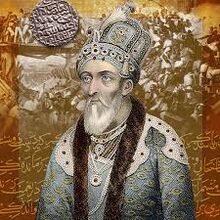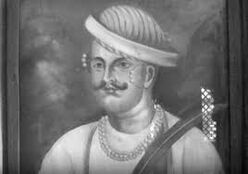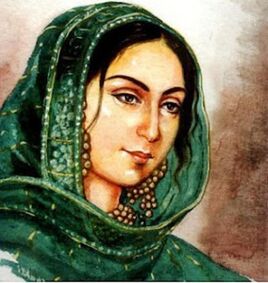m (Example, Next thing) Tag: Visual edit |
No edit summary Tag: Visual edit |
||
| Line 52: | Line 52: | ||
=== 1877<nowiki/> === |
=== 1877<nowiki/> === |
||
'''<u>Kashmir joins the war.</u>''' |
'''<u>Kashmir joins the war.</u>''' |
||
| − | |||
| − | === 1878 === |
||
| − | '''<u>The Khan of Kokand arrives in disguise to Lahore.</u>''' |
||
| − | |||
| − | '''<u>China joins the war against Russia.</u>''' |
||
| − | |||
| − | === 1879 === |
||
| − | '''<u>Gilgit sacked by Russia.</u>''' |
||
| − | |||
| − | '''<u>The Hindustani Emperor declares that Russia is a threat to national sovereignty.</u>''' |
||
=== === |
=== === |
||
Revision as of 10:23, 14 December 2017
“Oh! These sad scenes of death and sorrow,when are they to come to an end?”
OTL and context
In Indian history, the revolt of 1857 (also known as the Indian Mutiny, the First Indian War of Independence, etc) was a failure and those who committed it met terrible fates.
First of all how did this revolution start?
Well, the East India Company had controlled India for years and had many soldiers from there serving in their army. In fact, when the British fought Indian kings, often it would be Indians fighting alongside the British, seemingly in want of their own kings to submit to colonial rule!
The problem arose when the British got the new Enfield rifles. These soldiers were not Christians like the British, but they were Hindus and Muslims. Hindus were forbidden from eating cows, and Muslims were forbidden from eating pigs. The British,t o cut costs, used cow and pig fat to make grease for these rifles. They also revolted as they were made to serve in distant lands, were payed very little, and because of the way the British essentially took control of small Indian kingdoms. Thus, with the support of some Indian rulers, the soldiers rebelled.
Images( from top to bottom) Indian rulers Bahadur Shah Zafar of Delhi, Nana Saheb of Bithur, Begum Hazrat Mahal of Awadh, and Rani Laxmibai of Jhansi, all of whom played a prominent role in the revolt.
ATL and consequences
In this timeline, the revolt succeede, thanks to help from the large kingdoms who did not help them in OTL (such as Nepal and Travancore) and Bahadur Shah was crowned Emperor of Hindustan (OTL parts of Pakistan), and Shahenshah-i-Lahore. The other rulers too were made to rule over territories of theirs, while some sepoys set up republics known as 'Sipaahi Ganas'. The large kingdoms/empires would likely westernize and unify their regions, European-style, while the small ones would end up being annexed by the larger ones. Bombay, Madras,and Calcutta might have still had western influence because they were colonized pre-1857 but by large the region will not have English influence.
What would the reaction of the world be? What would the consequences of this be? Welcome to...Hamaara 1857!

Timeline
Main article:Timeline (Hamaara 1857)
It is 1877, twenty years after the conflict. As India is recovering from the conflict, the Russians pick a fight with the north, while Assam is in the midst of crisis without any heir to the Assamese throne. But hope is seen in a Meitei prince.
Let us see what happened after the Tamil-Lankan war began.
1869
Mohandas Gandhi is born.

The Maratha Diet passes the Virbhadra act, which allows Maharashtra to invade any neighbour and states that the Peshwa and the General are one and the same position.
1870
Russian troops are seen at the Afghan border.
1871

As Russia commences their invasion of Afghanistan, the Afghans ask their southern neighbours, the Mughals, for help.
The Mughals accept Afghanistan's plea for help and help Afghanistan.
The Russians respond by stationing troops south of the border with Afghanistan, now a part of Russia.
1875
Support from the Emirate of Bukhara and Khanates of Khiva and Kokand is confirmed.
Malaya unified; Sarawak and Singapore are declared protectorates of Malaya.

1876
The Gujarat-Sindh war ends, as well as the Tamil-Lankan war.
Kokand, Khiva and Bukhara are all annexed by Russia.
1877
Kashmir joins the war.
